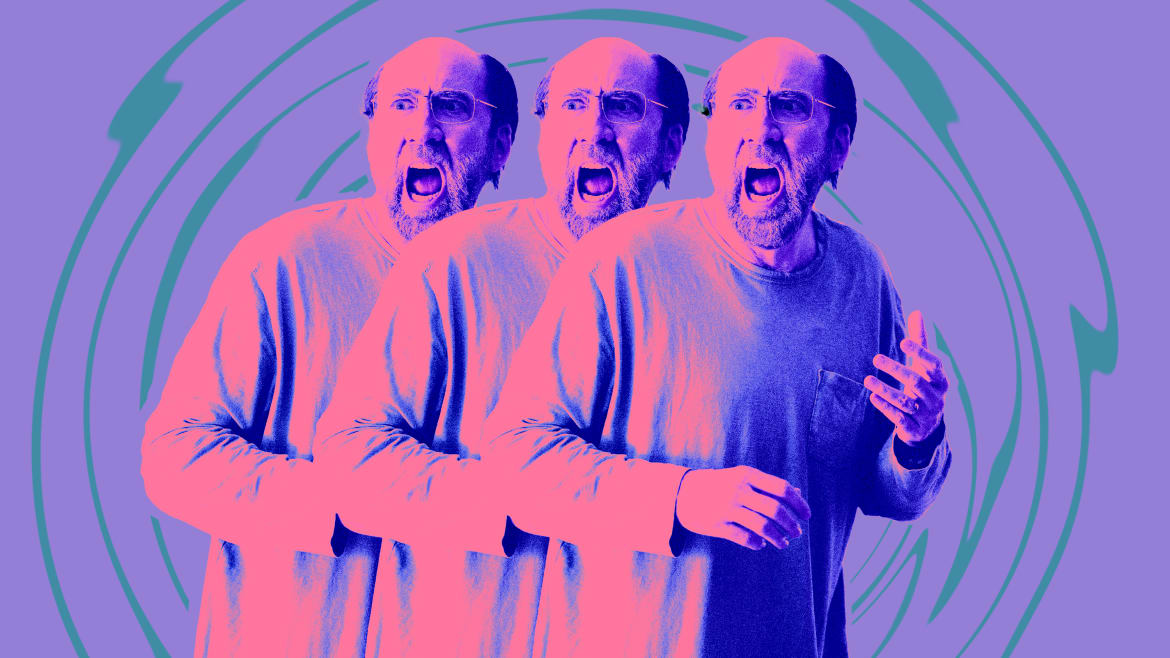Photo Illustration by Thomas Levinson/The Daily Beast/A24
It’s not often that a filmmaker has two movies drop in the same calendar year, and it’s even rarer that when they do, both movies are each of a piece with the other. Norway’s Kristoffer Borgli occupies that singular space; the L.A.-based director’s sophomore film Sick of Myself was released in April of this year by Utopia, and his most recent effort, Dream Scenario, is out in theaters now courtesy of A24.
The former is about the perils of attention-seeking, and the latter about the suffering endured when people are subject to attention they never sought. If viewers look for the metaphor, Sick of Myself and Dream Scenario appear representative of opposite ends of the social media axis: What happens to those who strive to go viral, and what happens to those who go viral without meaning or wanting to. But neither Signe (Kristine Kujath Thorp), Sick of Myself’s antihero lead, or Paul (Nicolas Cage), the starring schlemiel in Dream Scenario, allegorize social media notoriety at all. Instead, they’re reflections of Borgli’s own self-doubts and demons.
That his films can be—and indeed, frequently have been—interpreted as parables for the social media age says a great deal about how foundational social media is to our modern way of life. In Sick of Myself, Signe engages in a self-destructive (and one-sided) competition for attention and praise with her boyfriend, Thomas (Eirik Sæther), an artist on a hot streak, leading her to self-medicate with a pharmaceutical packing gruesome side effects; in Dream Scenario, Paul, a tenured professor at the fictional Osler University, suddenly and without explanation begins appearing in strangers’ dreams, kicking off his rise-and-fall from overnight sensation to eventual, and inevitable, global pariah.

